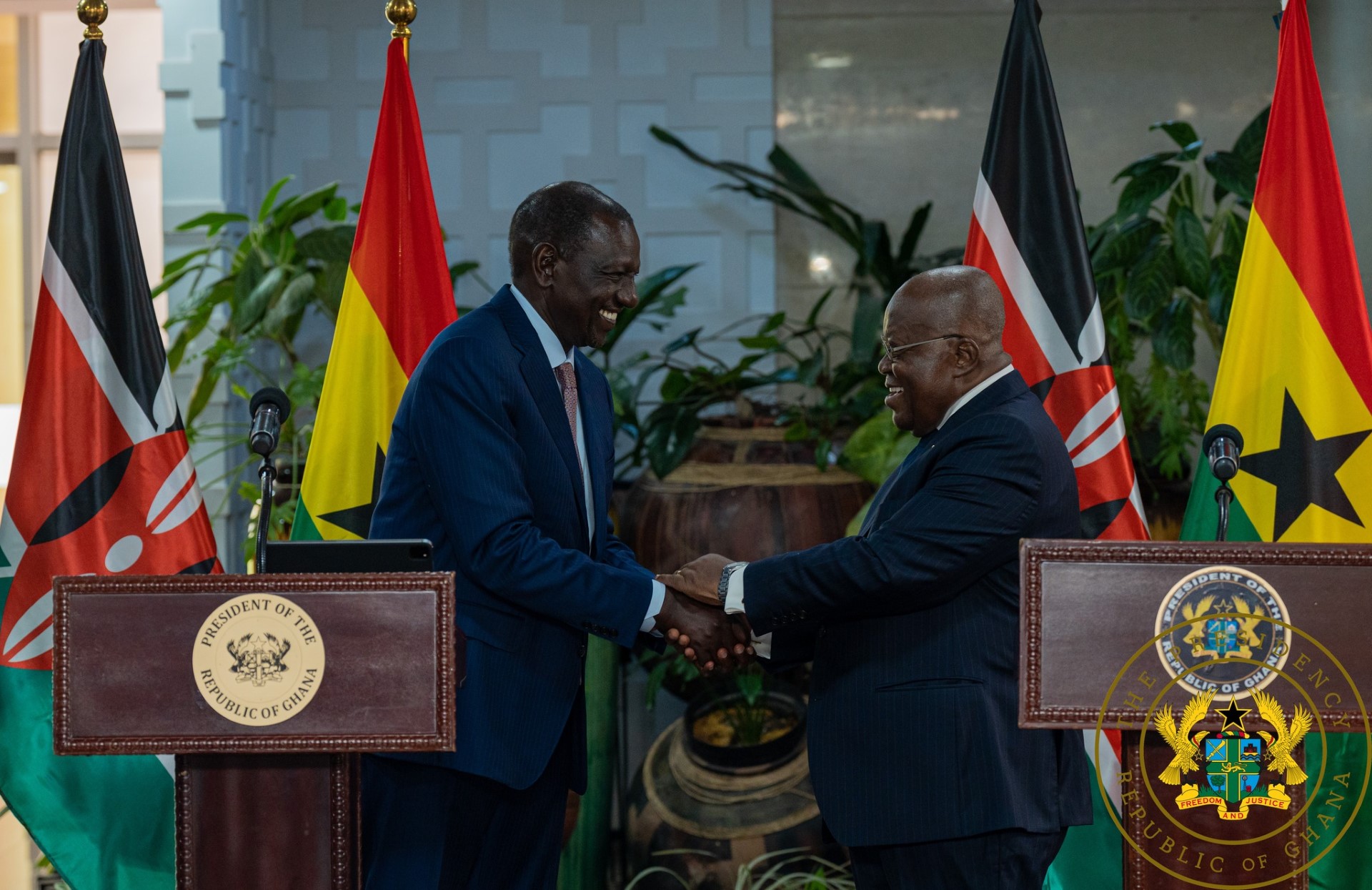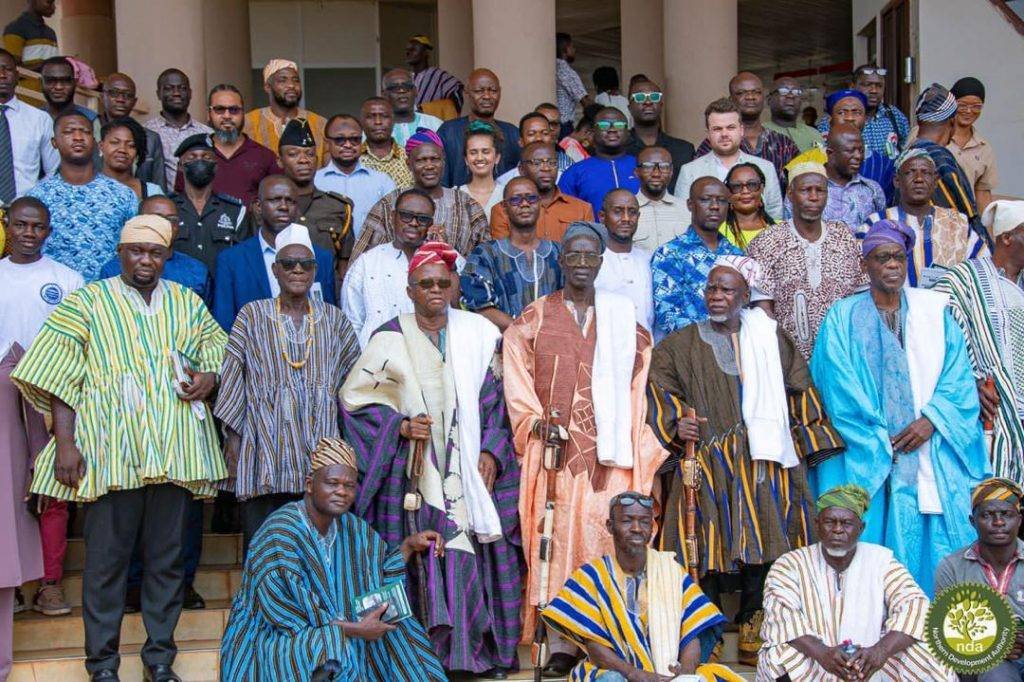
The International Monetary Fund (IMF) has said that ratcheting up a trade war and heightened trade policy uncertainty may further hinder both short-term and long-term growth prospects.
The Fund also said that scaling back international cooperation could jeopardize progress toward a more resilient global economy.
The Funda stated that after enduring a prolonged and unprecedented series of shocks, the global economy appeared to have stabilized, with steady yet underwhelming growth rates. However, the landscape has changed as governments around the world reorder policy priorities and uncertainties have climbed to new highs.
Forecasts for global growth have been revised markedly down compared with the January 2025 World Economic Outlook (WEO) Update, reflecting effective tariff rates at levels not seen in a century and a highly unpredictable environment.
“Global headline inflation is expected to decline at a slightly slower pace than what was expected in January,” it said.
“Intensifying downside risks dominate the outlook, amid escalating trade tensions and financial market adjustments. Divergent and swiftly changing policy positions or deteriorating sentiment could lead to even tighter global financial conditions. Ratcheting up a trade war and heightened trade policy uncertainty may further hinder both short-term and long-term growth prospects. Scaling back international cooperation could jeopardize progress toward a more resilient global economy,” it stressed in a report titled “Global growth is expected to decline and downside risks to intensify as major policy shifts unfold.”
At this critical juncture, the IMF said, countries should work constructively to promote a stable and predictable trade environment and to facilitate international cooperation, while addressing policy gaps and structural imbalances at home.
“This will help secure both internal and external economic stability. To stimulate growth and ease fiscal pressures, policies that promote healthy aging and enhance labor force participation among older individuals and women could be implemented.
“Additionally, productivity growth can be fostered with better integration of migrants and refugees and mitigation of skill mismatches.”
The Managing Director of the IMF, Kristalina Georgieva earlier has said that growing trade tensions is leading to uncertainty that is costly.
She makes the point that the complexity of modern supply chains means that tariffs can disrupt the flow of goods and services.
“Rising trade tensions bring uncertainty that is costly. The complexity of modern supply chains means that tariffs can disrupt the flow of goods and services, impacting the growth of economies everywhere,” she wrote on X.

Earlier, Madam Kristalina Georgieva appealed to the United States government and its trading partners to work constructively to resolve trade tensions and reduce uncertainty.
The Fund noted that the tariff measures announced by President Donald Trump pose a significant threat to the global economy at a time of sluggish growth
In a short statement on Thursday, April 3, reacting to the announcement of U.S. tariffs, Madam Georgiava said, “We are still assessing the macroeconomic implications of the announced tariff measures, but they clearly represent a significant risk to the global outlook at a time of sluggish growth. It is important to avoid steps that could further harm the world economy.
“We appeal to the United States and its trading partners to work constructively to resolve trade tensions and reduce uncertainty.”
She added, “We will share the results of our assessment in the World Economic Outlook, which will be published at the time of the IMF/World Bank Spring Meetings later this month”.

President Donald Trump on Wednesday, March 26, announced 25% tariffs on all cars shipped to the United States, a significant escalation in a global trade war.
The tariffs, set to take effect on April 3 at 12:01 am ET, are aimed at expanding America’s auto manufacturing prowess. For decades, because of a free trade agreement, automakers have treated Canada, Mexico and the United States as one big country, with no tariffs among them. Although the United States is home to a significant automaking industry, Trump wants to grow it.
On Wednesday, April 2, President Trump also unveiled an ambitious set of tariffs, including a 34% levy on imports from China and a 20% tax on goods from the European Union, signalling a dramatic intensification of global trade tensions.
These sweeping measures also impact Ghana, which will face a 10% baseline import tax.
Speaking from the Rose Garden, Trump declared a national economic emergency, justifying the tariffs as a means to revitalise domestic manufacturing and end what he referred to as decades of economic exploitation by foreign nations.
“Our country has been looted, pillaged, raped, and plundered by other nations,” Trump stated. “Taxpayers have been ripped off for more than 50 years. But that will not happen anymore.”
The post IMF: Trade war, heightened trade policy uncertainty may further hinder both short-term and long-term growth prospects first appeared on 3News.
Read Full Story
















Facebook
Twitter
Pinterest
Instagram
Google+
YouTube
LinkedIn
RSS